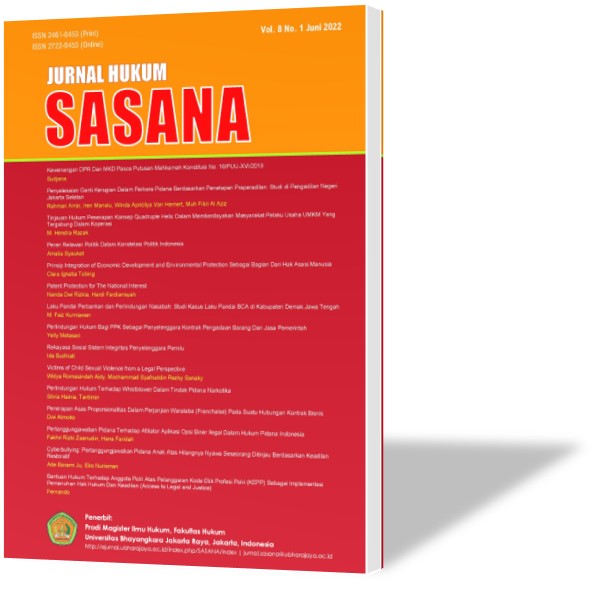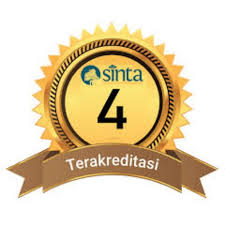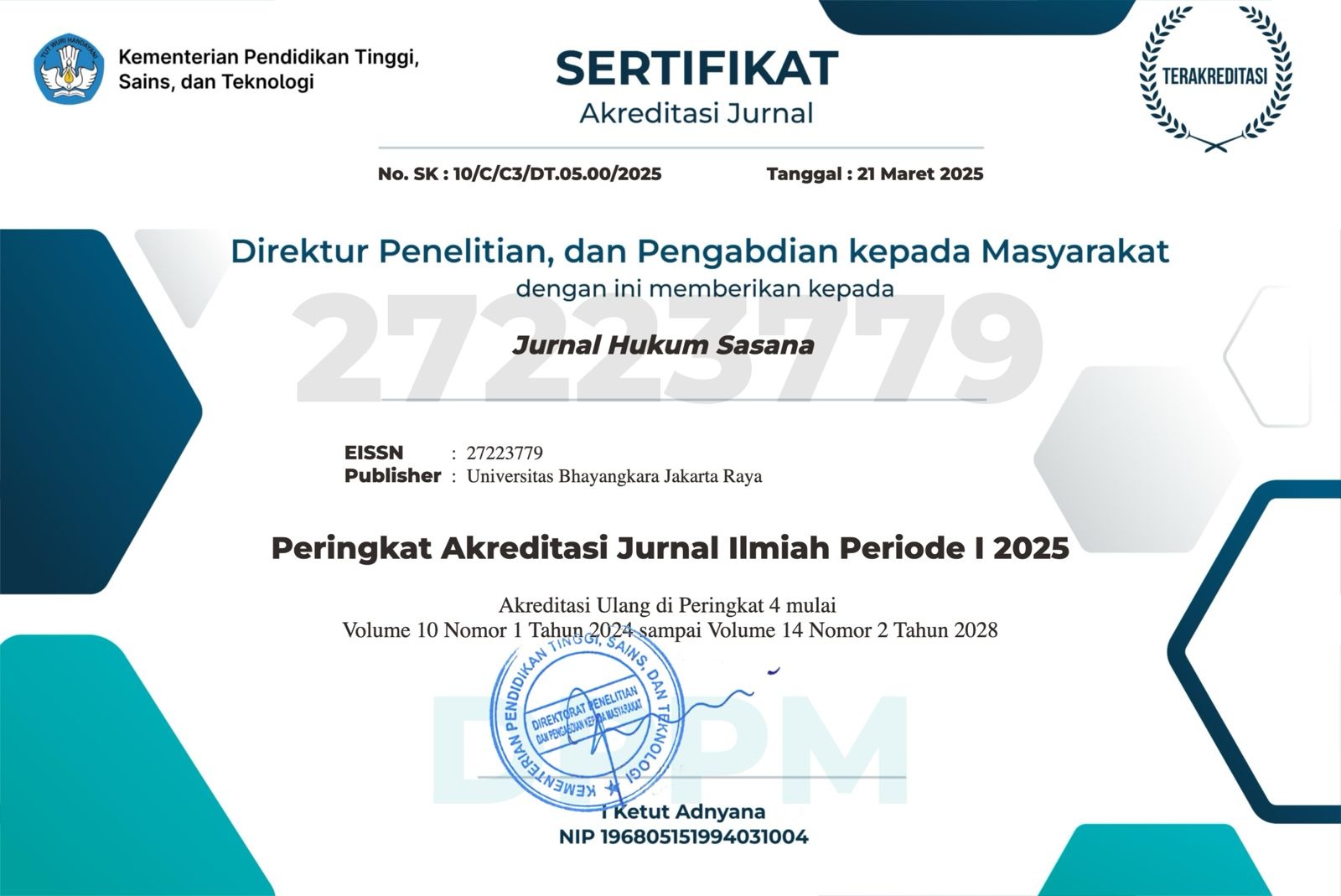Trading In Influence Dalam Kasus Kuota Import Daging Sapi Yang Melibatkan Partai Politik Anggota Legislatif Eksekutif Serta Swasta
DOI:
https://doi.org/10.31599/sasana.v11i1.4002Keywords:
Trading in influence, komunikasi korupsi dan Korupsi Kebijakan.Abstract
Trading in influence is a type of corruption that involves individuals who hold power or authority to influence policy decisions within the legislative or executive branches. This practice is often carried out by those who have direct access to policymakers. Until now, trading in influence has not been explicitly regulated in Indonesia’s Anti-Corruption Law. This academic study, which prioritizes secondary data, aims to examine how the offense of trading in influence applies in the Beef Import Quota case, which involved a political party chairman, members of the legislature, and party cadres. The study seeks to answer: under which legal provision were they prosecuted? And why? The results of this research lead to the conclusion that a patronage scheme with a horizontal trading influence pattern was used in the corruption case surrounding beef import procurement at the Ministry of Agriculture of the Republic of Indonesia in 2013–2014. The case involved a political party president acting as the patron-subject, a party cadre serving as the Minister of Agriculture, and an intermediary (also a party cadre), targeting the object of influence — PT Indoguna. This case was prosecuted under bribery charges, as it was proven that PT Indoguna paid IDR 40 billion. The charges were based on the similarity of the acts to bribery, especially because they involved abuse of power and the perpetrators were public officials.
Downloads
References
Buku
Abdullah, Aceng. Komunikasi Korupsi. Bandung: Simbiosa Rekatama Media, 2017.
Fiske, Jhon. Pengantar Ilmu Komunikasi. Jakarta: PT Rajagrafindo Persada, 2012.
Johnston, Michael. Syndrome of Corruption: Wealth, Power, and Democracy. London: Cambridge University Press, 2005.
Laluhu, Sabir. Metamorfosis Sandi Komunikasi Korupsi: Bildung Nusantara, 2017.
Ridwan. Hukum Administrasi Negara. Jakarta: PR Raja Grafindo Persada, 2014.
Rohcahyanto, Fitroh. Memperdagangkan Pengaruh Sebagai Tindak Pidana Korupsi. Surabaya, 2018.
Jurnal
Muhammad Yusril Izra, et al, “Urgensi Pengaturan Trading in Influence sebagai Tindak Pidana Korupsi dalam Tatanan Hukum Pidana Indonesia”, Halu Oleo Law Review, Vol. 4, No. 2.
Putu Eka, Pitriyantini, “Peraturan Kebijakan yang menimbulkan kerugian keuangan negara sebagai unsur tindak pidana korupsi”, Jurnal Komunikasi Hukum Universitas Pendidikan Ganesha, Vol. 5, No. 2.
Rizky Putradinata, et al, “Pertanggungjawaban Pidana Pejabat Pembuat Kebijakan (Policy Maker) atas Diambilnya Kebijakan yang Menimbulkan Kerugian Keuangan Negara”, Diponegoro Law Journal, Vol. 5, No. 3.
Syarifuddin, “PENERAPAN PIDANA TAMBAHAN PENCABUTAN HAK POLITIK PADA TINDAK PIDANA KORUPSI PUTUSAN NOMOR : 38/PID.SUS/TPK/2013/PN.JKT.PST DAN PUTUSAN NOMOR : 040 /PID.SUS/TPK/2017/PN.JKT.PS. UNES”, Journal of Swara Justisia, Vol. 3, No. 3.
Sukma Wijaya, Bambang, “Korupsi Komunikasi dalam Dimensi Pesan, Media, Konteks dan Perilaku: Sebuah Proposisi Teoritis untuk Riset”, Journal Communication Spectrum, Vol. 3, No. 1.
Putusan Pengadilan
PN Jakarta Pusat, Putusan No 38/PID.SUS/2013/PN.JKT.PST. 17 September 2020.
Pengadilan Tinggi Jakarta, Putusan No 34/PID/TPK/2014/PT.DKI jo. 1195K/Pid.Sus/2014.
Downloads
Published
Issue
Section
License
Copyright (c) 2025 Putri Ginatun Nisa, Amalia Syauket

This work is licensed under a Creative Commons Attribution-NonCommercial 4.0 International License.













_-_Copy1.jpg)




